Member Organisations
Explore our Member Organisations
Search Members by name (Results live update):
Filter by Alphabetical grouping:

A Rocha
Website: https://www.arocha.org/en/
A Rocha is an international Christian conservation charity working with a wide range of organizations. We run eight field study and environmental education centres (in Canada, Czech Republic, France, India, Kenya and Portugal) hosting researchers, volunteers and interns. At these centres, through site-based projects and wider advocacy, A Rocha:
- Carries out ecological monitoring and research;
- Spearheads practical measures for conserving and restoring habitats, their fauna and flora;
- Encourages appreciation of nature and participation in its conservation, through environmental education and community outreach;
- Provides a forum for understanding the relevance of the Christian faith to environmental issues.
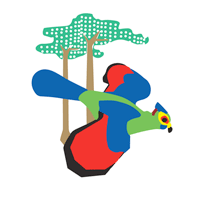
Albertine Rift Conservation Society (ARCOS)
Website: http://arcosnetwork.org/en/who-we-are/about-us
ARCOS is a non-governmental organization established in 1995 whose mission is to enhance biodiversity conservation and sustainable use of natural resources of the Albertine Rift region through the promotion of collaborative conservation action, awareness raising and biodiversity information exchange in the region. ARCOS operates through a regional office in Kampala (Uganda)and a network of different local organisations in the Albertine Rift region with a UK office hosted at BirdLife International (UK).
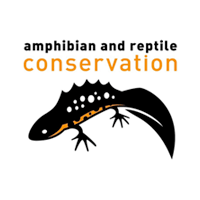
Amphibian and Reptile Conservation
Website: https://www.arc-trust.org/
Amphibian and Reptile Conservation (ARC) is a national wildlife charity committed to conserving amphibians and reptiles and saving the disappearing habitats on which they depend. ARC supports and promotes conservation through the management of nature reserves, coordination of species action plans and influencing policy and legislation at local, national and European levels.
We engage a wide range of people, agencies and organisations; developing key skills, knowledge and interest as a means toward an end to the current declines in many of our native amphibians and reptiles. We also provide information, education and training to a wide range of people, from those working in the field to people wanting to know more about the wildlife in their area.
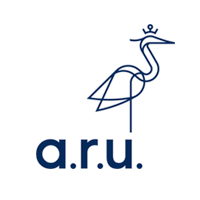
Anglia Ruskin University
Website: https://aru.ac.uk/science-and-engineering/life-sciences
The School of Life Science at Anglia Ruskin University supports an active community of academics and students with a passion for conservation. We run a variety of undergraduate and postgraduate courses relating to wildlife conservation and are keen to maximise student engagement with CCF partners.
Our Applied Ecology and Behavioural Ecology Research Groups are involved in cutting-edge research on a diverse range of national and international projects relating to global change. Our academic staff welcome suggestions for research collaborations and aim to utilise our research to inform and enhance the effectiveness of conservation management programs.

ARC Ecological Services
Website: https://www.arc-trust.org/arc-esl
ARC Ecological Services Ltd (ARC-ESL) is recently formed ecological and environmental consultancy which operates alongside, and provide support for, the long established Amphibian and Reptile Conservation Trust (ARCT). As well as employing professional ecologists, ARCT’s qualified and experienced staff share their time and commitment with the consultancy. ARC-ESL aims to be the consultancy of choice, particularly for work on the conservation of herpetological species and habitat management. Our services presently cover reptiles, amphibians, European protected species, habitat surveys, site management plans, Farming and Wildlife Environmental Stewardship, birds, mammals and plants.

Arcus Foundation
Website: https://www.arcusfoundation.org/
The Arcus Foundation is a global philanthropic funder advancing social justice and conservation issues. The Foundation has offices in New York, USA and Cambridge, UK. The Great Apes and Gibbons Programme is based in Cambridge.
The goal of the Arcus Great Apes and Gibbons Program is to ensure the respect and survival of the great apes and their natural habitat.
The Program supports conservation and policy advocacy efforts that promote the survival of the great apes in the wild and in sanctuaries that offer safety and freedom from invasive research and other forms of exploitation.
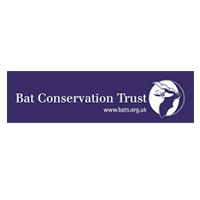
Bat Conservation Trust
Website: https://www.bats.org.uk/
The Bat Conservation Trust is the leading non-governmental organisation in the United Kingdom solely devoted to the conservation of bats and the landscapes on which they rely.
We support local bat groups across the UK, and over 6000 members.We work with volunteers, scientists, industry and government both locally and nationally on a range of projects.
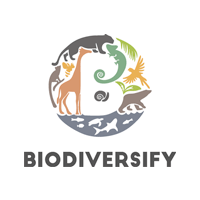
Biodiversify
Website: https://www.biodiversify.org/
The central purpose of Biodiversify is to actively forge a stronger connection between science and practice.
We achieve this by working with a wide selection of colleagues from around the world to develop solutions that draw from both cutting-edge theory and leading practice. Because we bring together experts who have dedicated their careers to solving real world problems, we can work with you to help you conceptualise and understand your problems. We will then draw on our extensive network of collaborators to bring in the expertise needed to develop innovative, scientifically informed solutions.

Biodiversity Business
Website: https://biodiversitybusiness.com/
Biodiversity Business is a Social Enterprise dedicated to saving endangered species and their habitats by creating Shared Value for Biodiversity and Business. It is a non-profit Social Enterprise based in the Cambridge area, but with a local and international network focused on supporting conservation projects.
We offer opportunities in volunteering and internships through our website: www.malaysianwildlife.org To coach individuals and organisations in communication and marketing skills for sustainability, we offer training and professional qualifications through our sustainablemarketing.academy For more information, please contact: barbara@biodiversitybusiness.org
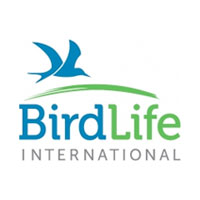
BirdLife International
Website: http://www.birdlife.org/
BirdLife International is a strategic global partnership of conservation organisations in over 100 countries, working to conserve birds, their habitats and global biodiversity, and to promote sustainability in the use of natural resources.
We are driven by our belief that local people, working for nature in their own places but connected nationally and internationally through our global partnership, are the key to sustaining all life on this planet. This unique local-to-global approach delivers high impact and long-term conservation for the benefit of nature and people.

British Antarctic Survey
Website: https://www.bas.ac.uk/
British Antarctic Survey (BAS), an institute of the Natural Environment Research Council (UKRI-NERC), delivers and enables world-leading interdisciplinary research in the Polar Regions. Its skilled science and support staff based in Cambridge, Antarctica and the Arctic, work together to deliver research that uses the Polar Regions to advance our understanding of Earth and our impact on it.
Through its extensive logistic capability and know-how BAS facilitates access for the British and international science community to the UK polar research operation. Numerous national and international collaborations, combined with an excellent infrastructure, help sustain a world-leading position for the UK in Antarctic affairs.
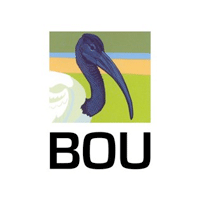
British Ornithologists’ Union
Website: https://www.bou.org.uk/
Founded in 1858 BOU is the oldest membership-based ornithological publishing society in the world. Our aims are to promote the understanding and conservation of the world’s birds, to advance ornithology within the scientific community and to promote scientific ornithology to the wider birdwatching public.
This is achieved by the publication of ornithological research, in particular through our journal of avian science, Ibis and the BOU Checklists avifauna series. We also run conferences on key ornithological and conservation topics; maintain the official list of birds recorded in Britain: award grants and bursaries for ornithological research; support Early Career Researchers and offer advice to other organisations and agencies.
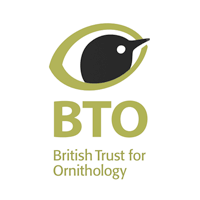
British Trust for Ornithology
Website: https://www.bto.org/
The BTO aims to promote and encourage the wider understanding, appreciation and conservation of birds by:
a) conducting high-quality, impartial research in field ornithology;
b) providing scientific evidence and advice on priority issues in bird conservation;
and
c) basing this work on a partnership between amateurs and professionals, conducting fieldwork that is both enjoyable and scientifically rigorous.
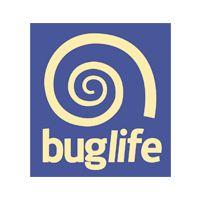
Buglife
Website: https://www.buglife.org.uk/
Buglife is the first organisation in Europe set up specifically for the conservation of all invertebrates. Its aims are to prevent invertebrate extinctions and maintain sustainable populations of invertebrates in the UK. 98% of all animal species are invertebrates, many of which provide us with food or ecological, agricultural, medical and technological benefits.
Invertebrate populations are also essential food to most birds, mammals and fish and are, therefore, integral to ecosystem function. In the UK alone we have over 40,000 different species,, the majority of which are insects. Others include spiders, crayfish, water fleas, woodlice, millipedes, snails, worms and sponges.

Butterfly Conservation Europe
Website: http://www.bc-europe.eu/
The association aims to prevent the extinction of any species of butterfly and moth, especially in Europe, and promote all activities and initiatives to conserve butterflies, moths and their habitats in Europe.
A major focus will be to help implement the Convention of Biological Diversity with respect to butterflies, moths and their habitats, and contribute to the EU target of halting biodiversity loss by 2010. We regard butterflies as a vital part of this.
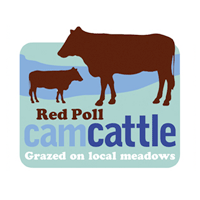
Cam Cattle
Website: https://www.facebook.com/Camcattle-and-Camlamb-1549160758734792/
Cam Cattle is run by a local grazier using the meadows along the river Cam as well as nature reserves around Cambridge to graze Red Poll cattle, a local rare breed.
The meat is sold locally at Farmers Markets and through local butchers.

Cam Valley Forum
Website: https://camvalleyforum.uk/
A voluntary ‘River Group’, and registered charity, operating within an extensive network of partners to protect and improve the environment of the River Cam and its tributaries.
We help identify, monitor and tackle problems, build collaborations, campaign for protection, and promote understanding of the river environment.
Our recent concerns relate to the impacts of invasive non-native species and to the poverty of groundwater source flows to our Chalk streams and to the consequent water pollution exacerbated by these low flows. We are also guardians of River Cam heritage and act against its erosion.

Cambridge Beekeepers’ Association
Website: www.cbka.org.uk
The Cambridgeshire Beekeepers’ Association (CBKA) is a registered charity No. 1183601. We represent and provide a point of contact for more than 550 beekeepers across Cambridgeshire, ranging from commercial bee farmers to absolute beginners. Our objective is educating beekeepers and the public all about honeybees and other pollinators.
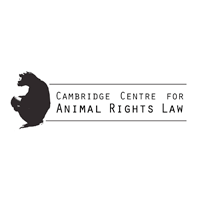
Cambridge Centre for Animal Rights Law
Website: https://animalrightslaw.org/
The Cambridge Centre for Animal Rights Law is an academic centre of competence dedicated to the study of fundamental rights for non-human animals and is based in Cambridge, UK.
Our Centre researches and publishes in the field of animal rights law, exploring and developing the key themes; teaches animal rights law courses to students; offers talks for lay audiences; supports law faculties at other universities internationally to assist them in offering their own courses, so that Animal Rights Law becomes a mainstream course within law degrees; and holds conferences and workshops for legal academics.
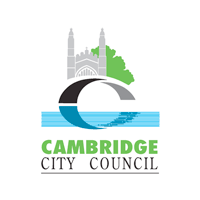
Cambridge City Council
Website: https://www.cambridge.gov.uk/
The Local authority shares a planning service with South Cambridgeshire district council, with whom we are working on the next joint local plan. Following the declaration of a Climate and Biodiversity emergency in 2019 the new local plan has an emphasis on sustainable development, green infrastructure and biodiversity.
We have a Nature Conservation Strategy that guides our biodiversity work across 80+ parks and open spaces, commons, water courses and 12 designated Local Nature Reserves LNRs). We run regular volunteer work parties on our LNRs and projects to enhance these spaces for people and wildlife.
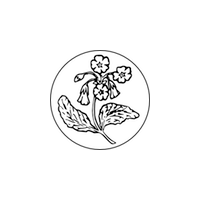
Cambridge Conservation Volunteers
Website: https://www.ccv.org.uk/
Cambridge Conservation Volunteers have been working on nature reserves and sites of wildlife interest in and around Cambridge since 1962.
We also have some favorite sites in Norfolk and Wales that we visit for a weekend during the year. Sometimes we go further a field for a week to Scotland or elsewhere in Europe.
The group is entirely made up of, and run by, volunteers and is very informal, membership is free. We work most Sundays throughout the year apart from the Spring when we keep clear of the nesting birds.
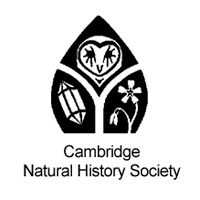
Cambridge Natural History Society
Website: http://www.cnhs.org.uk/

Cambridge Past, Present & Future
Website: https://www.cambridgeppf.org/
Cambridge Past, Present & Future is a local charity that cares about Cambridge and its green landscapes. Founded in 1928 the charity owns and cares for a number of countryside sites and historic buildings in the Cambridge area. Cambridge PPF has three main aims: 1. To inspire people of all ages to get involved with their local environment, heritage and culture. 2. To protect the green setting of Cambridge and its most valuable landscapes and to enhance and connect them for people and nature. 3. To protect, celebrate and improve the important heritage of the Cambridge area.
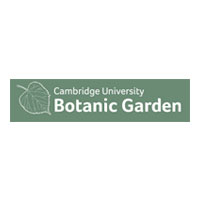
Cambridge University Botanic Garden
Website: https://www.botanic.cam.ac.uk/
The Cambridge University Botanic Garden holds a plant collection of over 8000 plant species from all over the world to facilitate teaching and research.
The Garden provides resources including plant material, horticultural expertise and facilities to research workers and lecturers.
Since its foundation, however, the Botanic Garden has also provided a beautiful place for everybody to enjoy and benefit from – a series of wonderful landscapes through which to discover the drama of plant diversity.
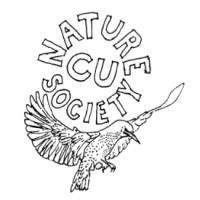
Cambridge University Nature Society
Website: https://www.facebook.com/CUNatureSociety/
The Cambridge University Nature Society (NatSoc for short) exists to promote the appreciation, enjoyment and understanding of the natural world.
We run trips to nature reserves in and around Cambridge, and host talks and other events relating to conservation, natural history and ecology.
Membership is free, and even though most of our members are current Cambridge University students, all are welcome. NatSoc members can also attend Cambridge Natural History Society (CNHS) talks without charge.
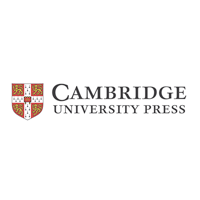
Cambridge University Press
Website: https://www.cambridge.org/
Cambridge University Press dates from 1534, and is the publishing business of the University of Cambridge.
Our purpose is to further the University’s objective of advancing knowledge, education, learning and research. We recognise that our activities, products or services may have an effect on the environment, and it is our aim to reduce that effect to a minimum.
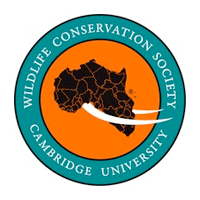
Cambridge University Wildlife Conservation Society
Website: https://cuwcs.soc.srcf.net/
Founded in 2014, the Cambridge University Wildlife Conservation Society (CUWCS) focuses on raising awareness of global and local conservation issues, and actively supporting grassroots conservation projects in East Africa.
As well as holding numerous events in Cambridge, CUWCS is establishing a conservation research project in conjunction with a local community organization in Kenya to reduce human-wildlife conflict and protect some of Africa’s iconic predator species – cheetahs, lions, leopards and wild dogs. CUWCS aims to increase awareness of the importance of conservation not only around Cambridge but further afield and to campaign for meaningful change in the UK and EU.

Cambridgeshire ACRE
Website: http://www.cambsacre.org.uk/
Established in 1924, as one of the first Rural Community Councils in the country, Cambridgeshire ACRE has been pioneering rural community development ever since.
We recognise that there is a need for the whole community to take responsibility for rural life. We believe that people have huge capacity and potential to improve the places in which they live, work and visit. We build resilient communities where people are well networked and prepared for the future.
Our work is about engaging communities to consider a sense of place, encouraging local distinctiveness and drawing upon local assets and social action.
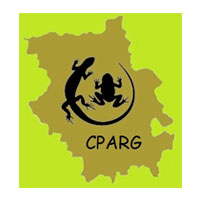
Cambridgeshire and Peterborough Amphibian and Reptile Group
Website: https://groups.arguk.org/CPARG/
The Cambridgeshire and Peterborough Amphibian and Reptile Group (CPARG) is a non-profit grassroots herpetofauna conservation group.
CPARG is run by and for volunteers whom are involved in surveying, training, talks, and workshops.
Our main goals are to promote amphibian and reptile conservation throughout Cambridgeshire, expand knowledge on current populations locally and liaise with planning authorities and consultancies regarding developments that may impact local herpetofauna.
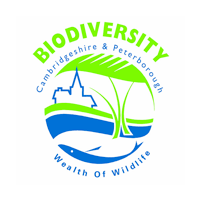
Cambridgeshire and Peterborough Biodiversity Group
Website: http://www.cpbiodiversity.org.uk/
The Cambridgeshire and Peterborough Biodiversity Group seeks to ensure that important local habitats and species are protected, enhanced and sensitively managed within the context of climate change and development pressures.
The Group provides a forum for local ecologists and experts from local authorities, statutory agencies and conservation charities to come together and share experience and knowledge to help conserve local biodiversity, linked closely to Natural Cambridgeshire (the Local Nature Partnership) since its formation in 2012.
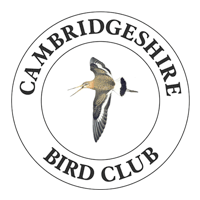
Cambridgeshire Bird Club
Website: https://www.cambridgebirdclub.org.uk/
The Cambridgeshire Bird Club holds regular meetings and workshops, and occasional conferences.
It collects and disseminates information on the birds of Cambridgeshire, and publishes an Annual Report and a monthly bulletin, which include articles and information on sightings of birds within the county. These data are made available for conservation planning.

Cambridgeshire Geological Society
Website: http://www.cambsgeology.org/
CGS promotes interest in the geology of Cambridgeshire, the UK and worldwide. Our Geosites team of volunteers identifies local sites of landscape and geological value and obtains their designation asLocal Geological Sites (equivalent to County Wildlife Sites) to encourage their conservation and use for geological education.
We are working with local community groups to create the Fen Edge Trail, a series of walks around the Cambridgeshire Fens that encourage people to explore the local landscape heritage, geology and soils, and learn about the links with history, wildlife and culture. Walk guides can be downloaded from the Fen Edge Trail website where there is also information on the geology and landscape of each area.
We organise monthly talks (at present by Zoom and free to all) on a variety of geological topics and organise excursions suitable for anyone interested in finding out more about landscape and geology.

Cambridgeshire Mammal Group
Website: http://www.cambsmammalgroup.org.uk/
The Cambridgeshire Mammal Group is a group of individuals (all volunteers) whose aim is to look after the health and welfare of the wild mammals of Cambridgeshire.
We maintain records of the presence and activities of wild mammals in the county, help investigate cases of suspected persecution or habitat disturbance, promote public awareness of wild mammals and their conservation, organise training for members and others in mammal-related matters, and provide advice and practical help to all relevant organisations and the public on habitat improvement and mammal-related matters.
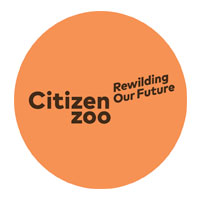
Citizen Zoo
Website: https://www.citizenzoo.org/
At Citizen Zoo we want to create a world filled with wildlife. A world filled with the full spectrum of diversity, beauty and abundance of nature.
We realise this mission by restoring habitats back to their functional states, reintroducing species to their former ranges and empowering people and communities to take action in protecting their natural heritage. We’re a social enterprise focused on rewilding, with a passionate team and dedicated Citizen Keepers around the country working to restore nature one species and habitat at a time.
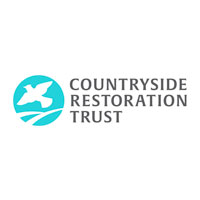
Countryside Restoration Trust
Website: https://www.countrysiderestorationtrust.com/
Launched in response to growing fears about intensive and industrialised farming, the Countryside Restoration Trust initially aimed to purchase land which had been intensively farmed, in order to restore it to a living countryside, rather than a lifeless food factory.
As the CRT has grown its aims have broadened to encompass purchasing farmland and woodland where traditional farming methods, wildlife habitat and biodiversity are under threat.
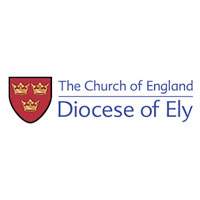
Diocese of Ely
Website: https://www.elydiocese.org/
The Diocese of Ely is the part of the Church of England serving Cambridgeshire and parts of neighbouring counties. The Fifth Mark of Mission for the worldwide Anglican Communion, of which we are part, is “To strive to safeguard the integrity of creation and sustain and renew the life of the earth”. The Diocesan Environment Group helps local churches and their members address this task.
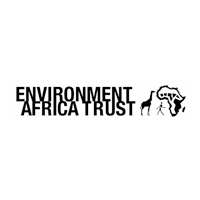
Environment Africa Trust
Website: https://www.facebook.com/EATrust
Environment Africa Trust (EAT) supports organisations working in Sub-Saharan Africa that encourage sound environmental management and biodiversity conservation through a strong community economic development focus to achieve sustainable livelihoods.
EAT recognises the growing interrelationship and interdependence between the environment and development fields, and aims to support African projects which share this recognition and work to bring about a productive and sustainable combination of both to the benefit of communities.
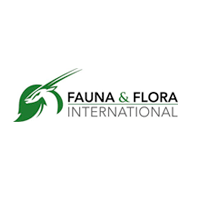
Fauna and Flora International
Website: https://www.fauna-flora.org/
Fauna & Flora International (FFI) protects threatened species and ecosystems worldwide, choosing solutions that are sustainable, based on sound science and that take account of human needs.
Operating in more than 40 countries worldwide, FFI saves species from extinction and habitats from destruction, while improving the livelihoods of local people.
Founded in 1903, FFI is the world’s longest established international conservation body and a registered charity.

Federation of Cambridge Residents’ Associations (FeCRA)
Website: http://fecra.org.uk/
The Federation of Cambridge Residents’ Associations (FeCRA) is a grassroots civic voice for everyone in Cambridge — and also for its environment.
Residents want a say in shaping Cambridge’s development to ensure that the city grows in a way that will achieve balanced communities and quality of life. Our strength is in our network of members in all city neighbourhoods, plus our strong contacts in nearby villages.
Membership currently includes 97 Residents Associations and community groups, including environmental and cultural/heritage groups such as Friends of Cambridge Library, Friends of Cherry Hinton Brook, members of Cam Valley Forum and Cam Conservators.
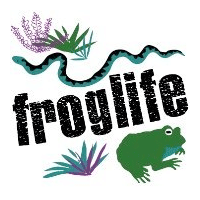
Froglife
Website: https://www.froglife.org/
Froglife is a national wildlife charity with a specific focus on the conservation of the UKs native reptile and amphibian species and their habitats.
We are a practical organisation, mainly urban focused, delivering action on the ground to conserve our species. We undertake applied research to help inform our work. Central to our ethos is to encourage as many people as possible to take action to help nature. We focus particularly on those individuals who for socio-economic reasons are often excluded from taking part in nature conservation activities.
Froglife is leaping forward for reptiles and amphibians.
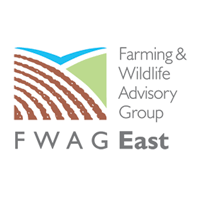
FWAG East
Website: http://www.fwageast.org.uk/
FWAG East is the Farming & Wildlife Advisory Group serving the counties of Cambridgeshire, Hertfordshire, Essex and Bedfordshire. Our independent advisory service helps farmers and land managers run profitable farm businesses whilst protecting the environmental value of their land.
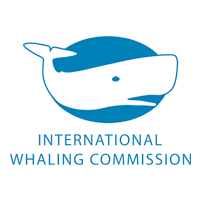
International Whaling Commission
Website: https://iwc.int/home
The International Whaling Commission is the global intergovernmental body charged with the conservation of whales and the management of whaling.
Set up under the International Convention for the Regulation of Whaling, 1946, the Commission has a current membership of 89 governments from countries around the world. In 1986 the Commission introduced zero catch limits for commercial whaling.
This provision is still in place today, although we continue to set catch limits for aboriginal subsistence whaling. As well as keeping whale catch limits under review, we work to promote the recovery of depleted whale populations by addressing a range of specific issues including ship strikes, entanglement events, environmental concerns and establishing protocols for whale watching.
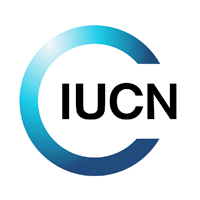
IUCN
Website: https://www.iucn.org/
IUCN, the International Union for Conservation of Nature, is the world’s oldest and largest global environmental network.
IUCN helps the world find pragmatic solutions to our most pressing environment and development challenges by supporting scientific research; managing field projects; and bringing governments, NGOs, the UN, international conventions and companies together to develop policy, laws and best practice.
Joining the IUCN family creates networking opportunities that help you identify common interests, new partners and potential funding sources. IUCN membership is open to States, government agencies, NGOs and academic institutions working in fields related to conservation or equitable and ecologically sustainable development. The six IUCN Commissions are broad and active networks of volunteer scientists and experts providing IUCN and its Members with sound know-how and policy advice to drive conservation and sustainable development.
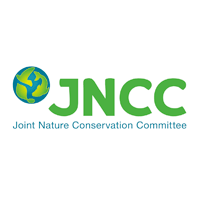
Joint Nature Conservation Committee
Website: https://jncc.gov.uk/
The Joint Nature Conservation Committee (JNCC) is the statutory adviser to Government on UK and international nature conservation, on behalf of the Council for Nature Conservation and the Countryside, the Countryside Council for Wales, Natural England and Scottish Natural Heritage. Its work contributes to maintaining and enriching biological diversity, conserving geological features and sustaining natural systems.
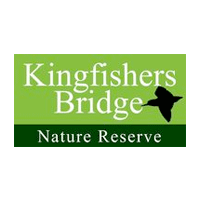
Kingfishers Bridge Nature Reserve
Website: http://www.kingfishersbridge.org/
Since 1995, Kingfishers Bridge has transformed 250 acres of fen farmland into a variety of wetland habitats for numerous endangered species of the Fens. Situated north of Cambridge and bordered by the Cam, this privately owned reserve has employed pioneering conservation techniques that have led to remarkable wildlife recovery.
Kingfishers Bridge is managed as a ‘wildlife first’ project with a very small staff but welcomes volunteer scientists and recorders. Visitors are welcome, year-round, to come and see conservation in action although physical access is restricted during the summer. The Kingfishers Bridge Wetland Creation Trust is its registered supporting charity.
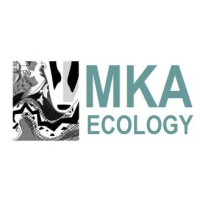
MKA Ecology
Website: https://mkaecology.co.uk/
MKA Ecology bring our expertise to the interface between development and ecological sustainability. We mostly work with landowners to ensure the best possible outcome for biodiversity and our clients’ plans and proposals. We have a wider portfolio too, from small scale developments and their required ecological impact assessments, through supporting local authorities with their local wildlife designations, to large re-wilding and restoration projects. To the team here at MKA every site matters.
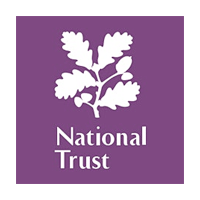
National Trust Wicken Fen
Website: https://www.nationaltrust.org.uk/wicken-fen-nature-reserve
Wicken Fen is the National Trust’s oldest nature reserve; and one of the most important surviving areas of wetland in western Europe. Over 9300 species have been recorded here. The heart of the place is Wicken Sedge Fen, an area that has never been drained. This makes it a unique remnant of the once extensive fenland of East Anglia, which is now largely given over to intensive arable farming. Wicken Fen is also home to the Wicken Fen Vision; a pioneering plan to expand the reserve across 53 square kilometres by 2099.
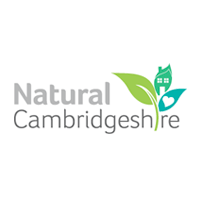
Natural Cambridgeshire
Website: https://naturalcambridgeshire.org.uk/
Natural Cambridgeshire is a partnership of leaders from businesses, local authorities, the health sector, farming, wildlife and environmental organisations.
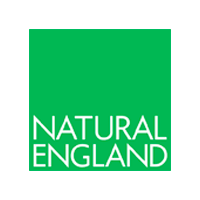
Natural England
Website: https://www.gov.uk/government/organisations/natural-england
Natural England is here to conserve and enhance the natural environment, for its intrinsic value, the wellbeing and enjoyment of people, and the economic prosperity that it brings. We are working towards the delivery of four strategic outcomes:
- A healthy natural environment – England’s natural environment will be conserved and enhanced.
- People are inspired to value and conserve the natural environment – more people inspired to enjoy, understand and act for the natural environment.
- Sustainable use of the natural environment – the use and management of the environment is more sustainable.
- A secure environmental future – decisions which collectively secure the future of the natural environment.
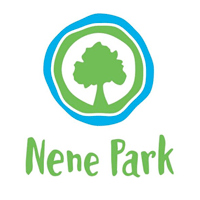
Nene Park Trust
Website: https://www.nenepark.org.uk/
Nene Park Trust is the registered charity which looks after Nene Park in its entirety. Established in 1988 to ensure that the Park would be managed and protected forever, the Trust looks after all maintenance, coordination of the Park’s activity programme and administration of commercial properties in the Park.
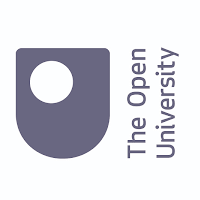
Open University
Website: http://www.open.ac.uk/science/environment-earth-ecosystems/
The School of Environment, Earth and Ecosystem Sciences at the Open University is a diverse one and includes academics interested in several aspects of Ecology and Wildlife Conservation. The department is based at Walton Hall, Milton Keynes, and serves students throughout the Anglian region. The OU offers a range of courses relating to conservation; postgraduate research is conducted in many areas of conservation, but particularly ecohydrology. We have long standing collaborations with other CCF institutions, particularly CEH. Our research laboratories, based at Walton Hall, have long-standing involvement in a European consortium studying the ecological impacts of atmospheric nitrogen deposition. The School currently hosts the Floodplain Meadows Partnership and iSPot.

Orchard Park Wildlife Project
Website: https://opwildlife.wordpress.com/
Orchard Park Wildlife Project aims to maintain and enhance Orchard Park’s wildlife through community action. We’re forming a group of people with an interest in wildlife and those who would like to learn about wildlife. The aim is to hold wildlife related events and activities throughout the year for all abilities and ages to join in.
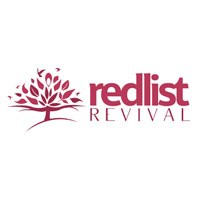
Redlist Revival
Website: http://redlistrevival.org/
We are a UK based charity helping to restore disappearing species by balancing the needs of the natural world with the needs of mankind, for the benefit of today’s generations – and tomorrow’s. We use the Sustainable Life Indicators to help make information accessible and The Life Map to consistently connect activity.
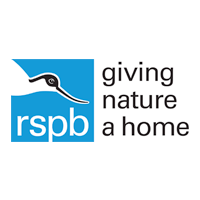
Royal Society for the Protection of Birds (RSPB)
Website: https://www.rspb.org.uk/
The RSPB speaks out for birds and wildlife, tackling the problems that threaten our environment.
RSPB is the largest wildlife conservation organisation in Europe with over one million members.It works to secure the conservation of wildlife through research, education, habitat management and advocacy. RSPB is the BirdLife International partner in the UK.
We have more than one million members, over 18,000 volunteers, 1,300 staff, more than 200 nature reserves, nine regional offices, a UK headquarters, three national offices… and one vision – to work for a better environment rich in birds and wildlife..

Royal Society of Biology – East Anglia
Website: https://www.rsb.org.uk/
The Royal Society of Biology is the professional body for UK biologists. The East Anglia branch arranges events at local level ranging from meetings on professional matters to social gatherings.
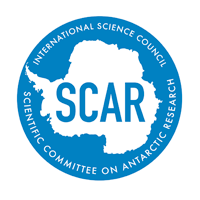
Scientific Committee on Antarctic Research
Website: https://www.scar.org/
The Scientific Committee on Antarctic Research (SCAR) is an inter-disciplinary committee of the International Council for Science (ICSU), and is charged with initiating, developing and coordinating high quality international scientific research in the Antarctic region, and on the role of the Antarctic region in the Earth system.
In addition to carrying out its primary scientific role, SCAR also provides objective and independent scientific advice to the Antarctic Treaty Consultative Meetings and other organizations on issues of science and conservation affecting the management of Antarctica and the Southern Ocean. In that role, SCAR has made numerous recommendations on a variety of matters, most of which have been incorporated into Antarctic Treaty instruments. Foremost amongst these have been the advice provided for the many international agreements which provide protection for the ecology and environment of the Antarctic
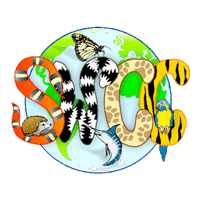
Shepreth Wildlife Park & Conservation Charity
Website: http://www.swccharity.org
Shepreth Wildlife Conservation Charity (SWCC) was established in March 2011 to help fundraise for important work both home and abroad. The organisation raises funds and educates visitors about species which are threatened with extinction, and also plays a major role in providing funds for the on-site Hedgehog Hospital.

St Ives EcoAction
Website: https://www.facebook.com/stivesecoaction/
St Ives EcoAction is a place-based community-led climate action group working together towards achieving net-zero carbon for St Ives and the surrounding villages by 2030. The organisation came into being following an open community meeting in January 2019 and has been gaining in momentum since. Through regular community meetings the group seeks to provide a platform for all those who wish to address concerns about our ecological and climate crisis, and turn those concerns into local action. Themes include: nature and conservation; active travel and sustainable transport; energy and water; circular economy including sustainable food networks; waste minimisation including recycling; and special interest groups including for faith groups and schools.

Synchronicity Earth
Website: https://www.synchronicityearth.org/
Synchronicity Earth’s mission is to act to address overlooked and underfunded conservation challenges for globally threatened species and ecosystems.
It aims to achieve this through: Research (identifying priorities and gaps in funding and action for biodiversity conservation); Action (developing conservation programmes and coordinate funding to address the most urgent challenges); Funding (providing guidance and fresh approaches to help donors understand and fund work to conserve wildlife and wild places; and Inspiration (engaging creatively with others to highlight the importance and wonder of nature and to challenge the status quo, so that all life on Earth is valued).

Talking Transformation
Website: http://79.170.40.178/talkingtransformation.org/
Talking Transformation is a professional facilitation and specialist advisory company based in Cambridge, UK, that works locally and internationally with partners and clients who want to bring about transformational change.
Talking Transformation is one of the few professional facilitation organisations in the world that has specific expertise in multi-stakeholder dialogue processes for sustainable natural resource management and a zero carbon, climate resilient world.

The Biodiversity Consultancy
Website: https://www.thebiodiversityconsultancy.com/
The Biodiversity Consultancy Ltd (TBC) is a small consultancy that specialises in quantifying biodiversity and in practical approaches to managing complex biodiversity issues.
We believe that biodiversity conservation can most effectively be achieved by development and implementation of effective biodiversity policies by multinational companies, governments, and financial institutions.
We specialise in International Finance Corporation (IFC) Performance Standard 6, custom-built quantitative ecological impact assessment approaches, and design of biodiversity offset and monitoring programmes. We focus on delivery of Net Positive Impact or No Net Loss for biodiversity.

The Hughes Hall Centre for Climate Change Engagement
Website: https://climatehughes.org/
The Hughes Hall Centre for Climate Change Engagement was established to support companies address climate change through effective climate governance on Boards. Since its formal inception in August 2019, it has made significant progress in drawing in corporate interest to tackle the climate challenge. The Centre already holds a unique position in the corporate community, nationally through its facilitation of Chapter Zero and internationally as Secretariat to the Climate Governance Initiative of the World Economic Forum. The Centre is also supporting research in the areas of climate change regulation and climate-related financial risks and opportunities and engages in the wider climate action efforts of the University through Cambridge Zero.
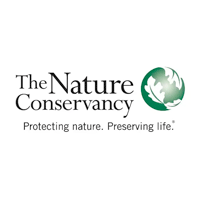
The Nature Conservancy
Website: https://www.nature.org/en-us/
The Nature Conservancy is a global environmental nonprofit working to create a world where people and nature can thrive.
Founded at its grassroots in the United States in 1951, The Nature Conservancy has grown to become one of the most effective and wide-reaching environmental organizations in the world. Thanks to more than a million members and the dedicated efforts of our diverse staff and more than 400 scientists, we impact conservation in 79 countries and territories across six continents.
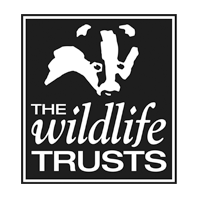
The Wildlife Trust for Bedfordshire, Cambridgeshire and Northamptonshire
Website: https://www.wildlifebcn.org/
The Wildlife Trust is the largest local charity dedicated to all aspects of nature conservation. We work across Bedfordshire, Cambridgeshire & Northamptonshire to create a wilder future by protecting and restoring wildlife and wild places. We manage over 100 nature reserves, provide advice to landowners, businesses and individuals, and work strategically across all three counties to build a nature recovery network. Through the national network of Wildlife Trusts we also campaign for laws and policies that will help nature to recover, so everyone can have access to nature in their neighbourhood. We are supported by over 34,000 members.

TRAFFIC
Website: https://www.traffic.org/
TRAFFIC is a leading non-governmental organisation working globally on trade in wild animals and plants in the context of both biodiversity conservation and sustainable development. Our mission is to ensure that trade in wild plants and animals is not a threat to the conservation of nature. We provide expert advice to governments and organisations around the world on key wildlife trade issues, from how to curtail illegal trade in iconic species through to active promotion of legal and sustainable trade and the benefits that can bring. Our conservation and development work is spread across a combination of ongoing wildlife trade monitoring, data gathering and analysis, policy engagement and individual projects.
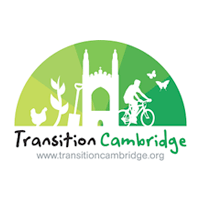
Transition Cambridge
Website: https://www.transitioncambridge.org/
Transition Cambridge aims to help Cambridge make the transition to ways of life that are more resilient in the face of rising energy prices and a changing climate.
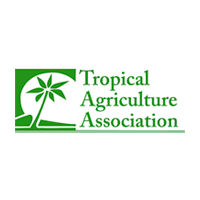
Tropical Agriculture Association
Website: https://www.taa.org.uk
An international professional association of individuals, institutional bodies, and civil society organisations concerned with the role of agriculture for sustainable development. Our mission is “To advance education, research and practice in agriculture for rural livelihoods and sustainable development”. Objectives include: contribute to policies aimed at reducing poverty and improving rural livelihoods in the tropics, sub-tropics and countries with less developed economies; encourage initiatives to arrest degradation of natural resources and improve productivity and sustainability of agriculture; support the achievement of the 2015 UN Sustainable Development Goals, especially Goal 2: “End hunger, achieve food security and improved nutrition, promote sustainable agriculture.
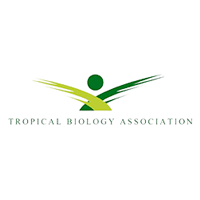
Tropical Biology Association
Website: http://www.tropical-biology.org/
The Tropical Biology Association is safeguarding biodiversity by building expertise among conservationists to manage their natural resources, sustainably.
The Tropical Biology Association puts people at the heart of conservation, giving them the skills and support they need to be effective on the ground.
It’s what we call capacity building. Our approach is unique because we provide all of the following to everyone we train:
- Tailored training that is relevant and practical
- Learner-centred teaching by local and international specialists
- Follow-up support to ensure new skills are applied
- Active networks for on-going collaboration and exchange of best practice

Trumpington Community Orchard Project
Website: https://trumpingtonorchard.org/
Trumpington Community Orchard runs the orchard on organic lines, and have introduced lots of habitats for wildlife, including beetle banks, bird boxes and bat boxes. Every summer holds a moth survey to see how many different species are around locally. Trumpington Community Orchard holda other wildlife events when can, and welcomes groups who wish to study the insects, birds and animals that inhabit or pass through the site.
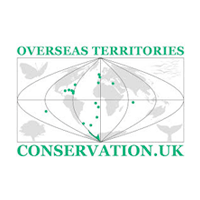
UK Overseas Territories Conservation Forum
Website: https://www.ukotcf.org.uk/
The UK Overseas Territories Conservation Forum exists to promote the conservation of the rich and unique biodiversity, the natural environment and related heritage in the Overseas Territories and Crown Dependencies of the United Kingdom (UKOTs and CDs) – for the benefit and enjoyment of all people, not only now but also for future generations. It is a not-for-profit, non-government organisation (NGO) supported by grants, donations and subscriptions, and a registered charity and company. It brings together those organisations and individuals interested in these areas, and works in partnership with local organisations in the Territories.
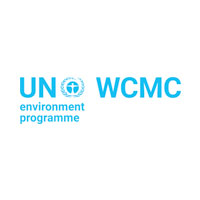
UNEP – WCMC
Website: https://www.unep-wcmc.org/
The UN Environment Programme World Conservation Monitoring Centre (UNEP-WCMC) is a global centre of excellence on biodiversity. The Centre operates as a collaboration between UN Environment Programme and the UK registered charity WCMC. Together, we are confronting the global crisis facing nature. We do this through our unique position ensuring science, knowledge and insights shape global and national policy, and by collaborating with partners around the world to build capacity and create innovative solutions to environmental challenges. We use our position as respected custodians of powerful and trusted environmental data to create positive impact for people and nature.
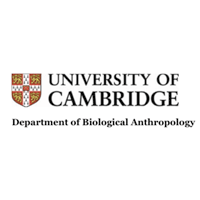
University of Cambridge, Department of Biological Anthropology
Website: https://www.bioanth.cam.ac.uk/
The Division of Biological Anthropology is a thriving, highly-interdisciplinary institution, which has grown significantly in recent years, both in number of senior researchers and the size of its undergraduate and graduate community.
Research in the Division covers a wide range of areas, from primate behaviour, to primate and human evolutionary genetics, human population biology and ecology, Palaeolithic archaeology and evolutionary anthropology.
All senior members of the Division contribute to undergraduate and graduate teaching, and are involved in national and international research projects.
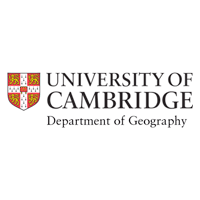
University of Cambridge, Department of Geography
Website: https://www.geog.cam.ac.uk/
The Department of Geography today is a flourishing and expanding academic community committed to high standards of research. The questions we ask, the philosophies and methodologies we draw upon, embrace the natural and social sciences as well as the humanities. Research is represented by our main research thematic groups and our work brings us into contact and collaboration with many other disciplines to address the challenges of a changing world.
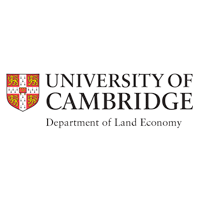
University of Cambridge, Department of Land Economy
Website: https://www.landecon.cam.ac.uk/
The Department of Land Economy is a leading international centre, providing a full programme of taught courses within an intensive, research-oriented environment.
Land Economy, as a subject, considers the role and use of land, real estate and environment within an economy. It applies particularly the disciplines of economics, law and planning for the analysis of the governance of land use, urban areas and interactions with other environmental resources.
The Department addresses contemporary problems as well as more fundamental analysis.
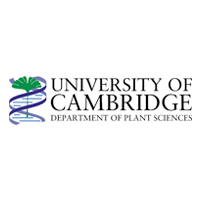
University of Cambridge, Department of Plant Sciences
Website: https://www.plantsci.cam.ac.uk/
The Department of Plant Sciences is a unique centre of learning in the fundamental plant processes which sustain life on earth, using an understanding of molecular mechanisms and ecological systems to inform teaching across the Natural Sciences.
Research excellence was recognised in the recent (2008-9) RAE submission from the School of Biology by the volume of staff identified as researchers of world-leading or international status.
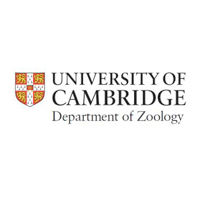
University of Cambridge, Department of Zoology
Website: https://www.zoo.cam.ac.uk/
The Department of Zoology at the University of Cambridge is a founding member of the CCF. Zoology is a large, multi-disciplinary Department, currently numbering about 100 research staff and about 80 PhD students. The Department has a strong and growing interest in conservation. Its Conservation Science Group has around 15 members and has strong links with the RSPB, BirdLife International, the Institute of Zoology, UNEP-WCMC, WWF, and the World Bank, among others.
The Aquatic Ecology Group works in the UK, China and elsewhere on the conservation impacts of river and lake management, the use of bivalves in freshwater restoration, and the control of invasive molluscs. Other members of the Department are also active in conservation-related research. The Department set up and hosts the annual Student Conference in Conservation Science which has already built linkages between more than 800 young conservationists from over 80 countries. The Department hosts the Tropical Biology Association, and has a research partnership with the Institute of Zoology, the research arm of the Zoological society of London.

Vision Wild
Website: https://www.visionwild.co.uk/
Vision Wild Ltd is is a small, local consultancy based in Cambridge, which designs and implements nature conservation projects for charities, communities and small businesses. Our aim is to realize more conservation success stories. We do this by assisting land owners, land managers and organisations to achieve bigger and better project results, specifically for species and habitat recovery. Vision Wild provide advice and support focusing on strategy, project support, monitoring and fundraising. All leading to greater revenue, greater efficiencies and ultimately greater conservation impact.
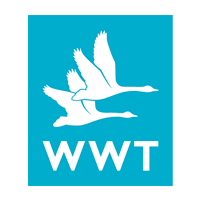
Wildfowl & Wetlands Trust (Welney)
Website: https://www.wwt.org.uk/
The Wildfowl & Wetlands Trust (WWT) is a leading conservation organisation saving wetlands for wildlife and people across the world. Almost all life depends on wetlands for water, food, or habitat. Yet a third of all wetlands have been destroyed. We are pioneers in saving threatened wetland wildlife, a centre for excellence in conservation science and experts in wetland management and creation.

Wildlife Conservation Society
Website: https://www.wcs.org/
The Wildlife Conservation Society is an international organization that saves wildlife and wild places through science, conservation action, education, and inspiring people to value nature.
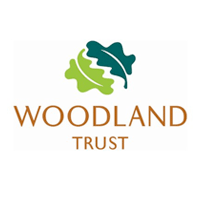
Woodland Trust
Website: https://www.woodlandtrust.org.uk/
Our vision is a UK rich in native woods and trees, for people and wildlife.
